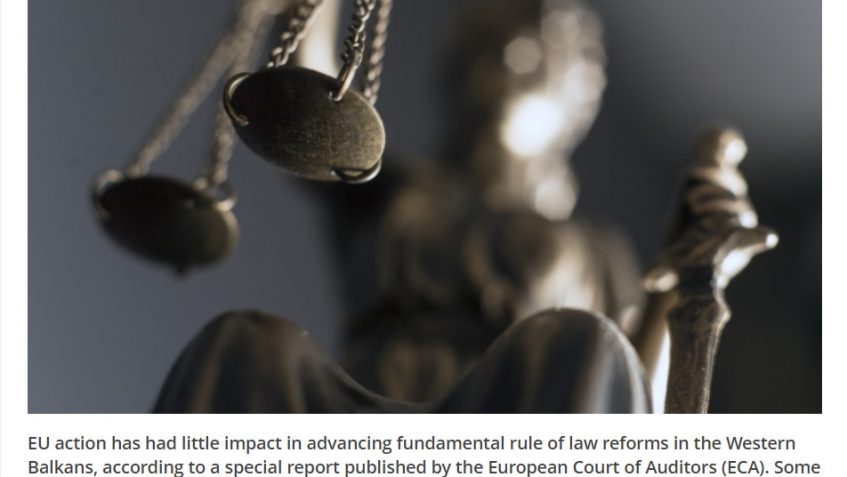During the 2014-2020 period, the European Union disbursed an amount of 134 million euros to strengthen the rule of law, to improve governance by reducing corruption risks and to support implementation of the country’s inter-sector strategy against corruption. According to the latest report of European Court of Auditors Albania was ranked with the lowest index for the region on governance and rule of law despite EU efforts. ECA emphasize that fundamental problems persist with no improvements on independence of the judiciary, increase concentration of power, political interference and endemic corruption.

- In the region (notably in Albania), government officials (some of them high-ranking) and members of parliament still comment publicly and regularly on ongoing investigations and court proceedings, and sometimes even on individual judges and prosecutors. In Albania the Council of Europe criticized the practice of online media to spread rumors’ and attacks on public figures.
Attempted interference with the judiciary, including by authorities within the judiciary, and internal and external pressure on prosecutors remain an issue.
- Mainly in Albania, the Commission and other international organizations report limited progress in the rule of law. Fundamental problems remain in areas such as the independence of the judiciary, the concentration of power, political interference and corruption, which call for additional efforts in promoting reforms in these areas.
- Interviewed business representatives and journalists said that corruption in public procurement is pervasive, with clear indications of state capture: procedures often lack effective competition, the prices bid for public works are inflated, and procurement for concessionary agreements lacks transparency.
- The disruption caused to the system by the scale and slow pace of vetting has affected public support for judicial reforms because of an increasing backlog of cases, and risks undermining their perceived legitimacy. The share of Albanians who believe that the reforms will have a positive impact shrank from 71 % in 2016 to 53 % in 2019, and those who think the reforms are being implemented appropriately fell from 46 % to 32 % during the same period. The Albanian public mainly gets its information from traditional media sources, which are perceived as having vested interests and thus can either downplay or accentuate corruption scandals depending on their political or business allegiances. This, too, risks undermining the perceived legitimacy of the reforms.
- Albania had limited progress on Freedom of expression during 2019 and no progress at all during 2020.
![]()



